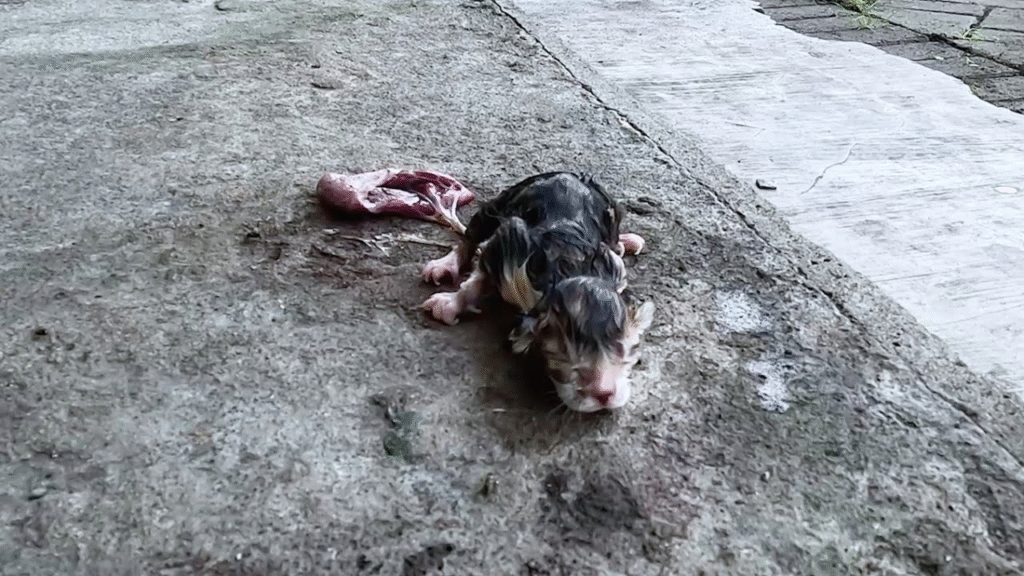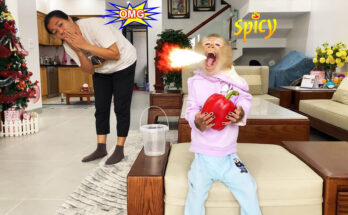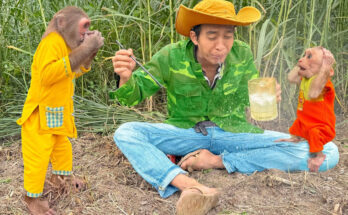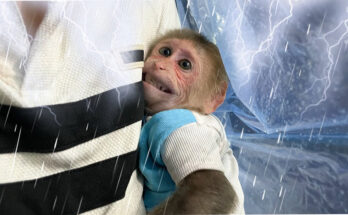It was a quiet afternoon when I heard the faintest of cries coming from under the porch. At first, I thought it was a bird, but following the sound led me to something much smaller and more fragile — a newborn kitten, no more than an hour old, shivering and alone. Its tiny body was still damp, eyes tightly shut, with a desperate mewing that broke my heart.
I knew the chances were slim. Newborn kittens are incredibly delicate, relying heavily on their mother’s warmth and milk. Without immediate intervention, this little life might not survive the night. Gently, I wrapped the kitten in a soft towel and brought it inside. I prepared a warm water bottle, carefully placing it near the kitten to mimic the mother’s warmth, making sure it wasn’t too hot.
After a quick search online and a call to a local vet, I learned I needed to feed it special kitten formula — not regular milk, which could be harmful. Racing to the pet store, I bought a kitten nursing bottle and formula, feeling the weight of urgency with every passing second. Back home, I warmed the formula slightly and tried to encourage the kitten to suckle. It was a slow process; the kitten was so weak and barely had the strength.
Hour by hour, I monitored its temperature, its tiny breaths, and its attempts to feed. Every small movement felt like a victory. I kept a close watch throughout the night, feeding it every two hours and gently stimulating its tiny body to help it eliminate waste, as a mother cat would.
Saving a newborn kitten is a fight against time and nature. It requires patience, hope, and a lot of heart. That night, as the kitten finally curled against the warm bottle, purring softly in its sleep, I realized something profound — even the smallest lives can inspire the greatest acts of compassion. Whether the kitten would make it through the next few days was uncertain, but in that moment, it was safe, loved, and no longer alone.



